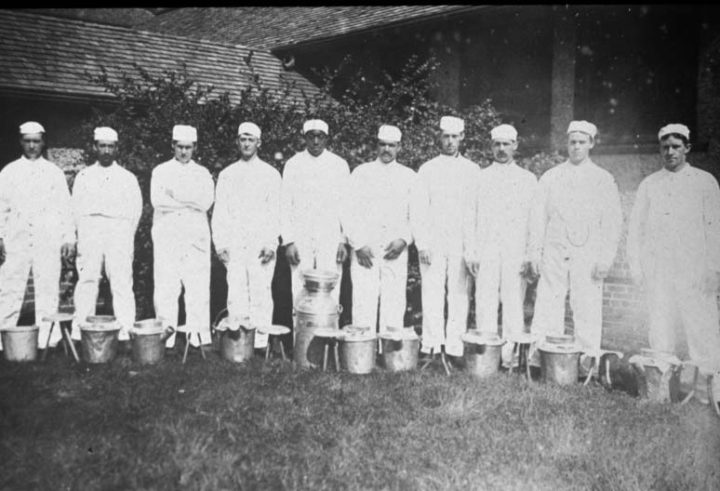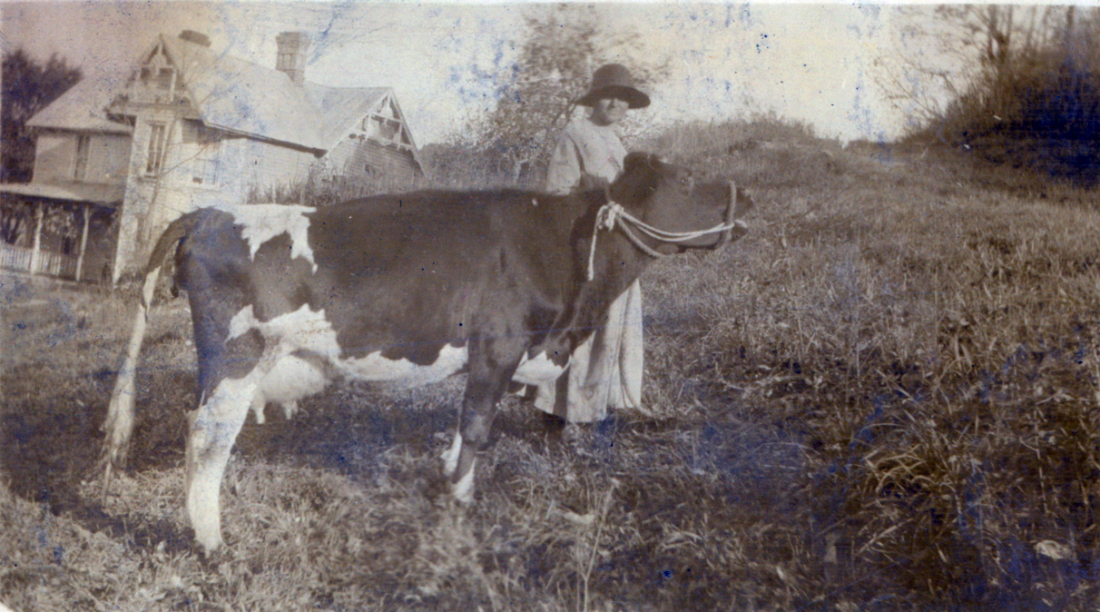In the early days of the Great Depression, Asheville residents were encouraged to take up dairy farming as a way to combat the economic hardships.
“There is no sounder basis for agriculture anywhere than dairying where the conditions are such that this can be practiced with success,” declared a Nov. 12, 1931, editorial in The Asheville Citizen. “It is almost impossible for a region in which the dairy industry has been soundly established to experience prolonged hard times.”
The following month, The Asheville Citizen ran a full report from a local dairy committee. The group urged “one cow for every five persons.” Furthermore, the committee encouraged feeding cattle “liberally” to ensure a net gain. “Little profit can be expected from a production of less than 275 pounds of fat,” the report read.
Amid the dairy craze, the Biltmore Dairy Farms on the Biltmore Estate expanded its plant. On Aug. 26, 1932, The Asheville Citizen noted that over 6,000 residents visited the establishment during its grand reopening. Along with free entry, over 7,000 dishes of Biltmore ice cream were served, the paper stated. According to the article, the latest equipment allowed the plant to double its capacity, producing over 4,000 pounds of butter and 2,000 pounds of ice cream daily.
That October, the push for additional dairy farmers once again appeared in the paper. Based on 1931 data, “production of cheese in this state was eleven million pounds short of the amount needed for local consumption,” the paper wrote. Meanwhile, the supply of butter fell 16 million pounds short of demand.
With this in mind, The Asheville Citizen concluded:
“Farm dairying should be undertaken as a permanent side-line to the usual cash crop, and not as a substitute or as an emergency measure for low-priced cotton or tobacco. The farmer who goes into farm dairying one year and out the next according to whether the price of cotton or tobacco is up or down will be a failure as a dairyman. However, the man who properly feeds his cows on home-grown feeds and gradually builds up milk productions by good breeding and selection will find that his returns from the cows over a period of years will compare favorably with any other farm enterprise.”

Locals appear to have heeded the call. On May 28, 1934, The Asheville Citizen informed readers that Buncombe County led the way in a recent study conducted by the Tennessee Valley Authority focused on the economics tied to farming in 15 WNC counties.
Among its many first-place finishes, Buncombe farmers topped the list for most cropland with 57,559 acres (14% of the county’s total acreage), top total wages at $3,413,462 (or $69,210,744 in today’s currency) and the best value of dairy products at $770,688 (or $15,626,332 in today’s currency).
“Buncombe is one of the most important livestock counties of the state, and leads them all in the number of milk cows,” the Tennessee Valley Authority declared. “It is noted for its fine dairies, purebred cows and large poultry industry.”
Editor’s note: Peculiarities of spelling and punctuation are preserved from the original documents.




Before you comment
The comments section is here to provide a platform for civil dialogue on the issues we face together as a local community. Xpress is committed to offering this platform for all voices, but when the tone of the discussion gets nasty or strays off topic, we believe many people choose not to participate. Xpress editors are determined to moderate comments to ensure a constructive interchange is maintained. All comments judged not to be in keeping with the spirit of civil discourse will be removed and repeat violators will be banned. See here for our terms of service. Thank you for being part of this effort to promote respectful discussion.